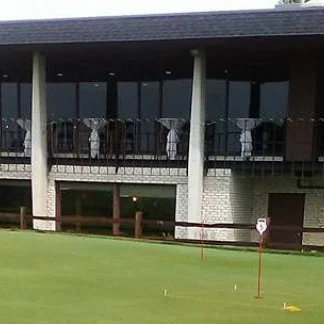American Indian Council on Alcoholism
American Indian Council on Alcoholism offers outpatient treatment for individual...
Project RETURN - Changes Support Groups offers three groups to individuals not referred by the Department of Corrections to address Alcohol and Other Drug Abuse issues in their life. Project RETURN - Changes Support Groups is located in Milwaukee, Wisconsin.
Project RETURN (Returning Ex-offenders To Urban Realities and Neighborhoods), is an interfaith ministry that exists to help men and women who have experienced incarceration, make a positive and permanent return to community, family, and friends.
Some of the programs offered by Project RETURN include Re-Entry Employment Program (PREP), Fatherhood Initiative, Jobs Task Force, Changes Support Groups, and Alumni Group. Changes Support Group offers two groups, the men’s groups (Tuesday and Friday night, both facilitated by Clem Richardson), and the other is a women’s group (Wednesday, facilitated by Lavealea Ball-Johnson).
Contact us for more information: (414) 374-8029

Connect with Project RETURN - Changes Support Groups by calling their admissions team directly.
(414) 374-8029 Website Get DirectionsResearch clearly demonstrates that recovery is far more successful and sustainable when loved ones like family members participate in rehab and substance abuse treatment. Genetic factors may be at play when it comes to drug and alcohol addiction, as well as mental health issues. Family dynamics often play a critical role in addiction triggers, and if properly educated, family members can be a strong source of support when it comes to rehabilitation.
Group therapy is any therapeutic work that happens in a group (not one-on-one). There are a number of different group therapy modalities, including support groups, experiential therapy, psycho-education, and more. Group therapy involves treatment as well as processing interaction between group members.
Life skills trainings involve all the skills a person must have in order to function successfully in the world. These include time management, career guidance, money management, and effective communication. Truly successful addiction recovery is based on the ability to not only live substance-free, but to thrive. Life skills teaches the practical necessities of functioning in society, which sets clients up for success in life, and therefore sobriety.
Group therapy is any therapeutic work that happens in a group (not one-on-one). There are a number of different group therapy modalities, including support groups, experiential therapy, psycho-education, and more. Group therapy involves treatment as well as processing interaction between group members.
Life skills trainings involve all the skills a person must have in order to function successfully in the world. These include time management, career guidance, money management, and effective communication. Truly successful addiction recovery is based on the ability to not only live substance-free, but to thrive. Life skills teaches the practical necessities of functioning in society, which sets clients up for success in life, and therefore sobriety.
Life skills trainings involve all the skills a person must have in order to function successfully in the world. These include time management, career guidance, money management, and effective communication. Truly successful addiction recovery is based on the ability to not only live substance-free, but to thrive. Life skills teaches the practical necessities of functioning in society, which sets clients up for success in life, and therefore sobriety.
American Indian Council on Alcoholism offers outpatient treatment for individual...
Omni Enrichment is a private rehab located in Milwaukee, Wisconsin. Omni Enrichm...
Clement J. Zablocki VA Medical Center provides Behavioral Health and Chemical De...
Crack Treatment Recovery First is a private rehab located in Milwaukee, Wisconsi...